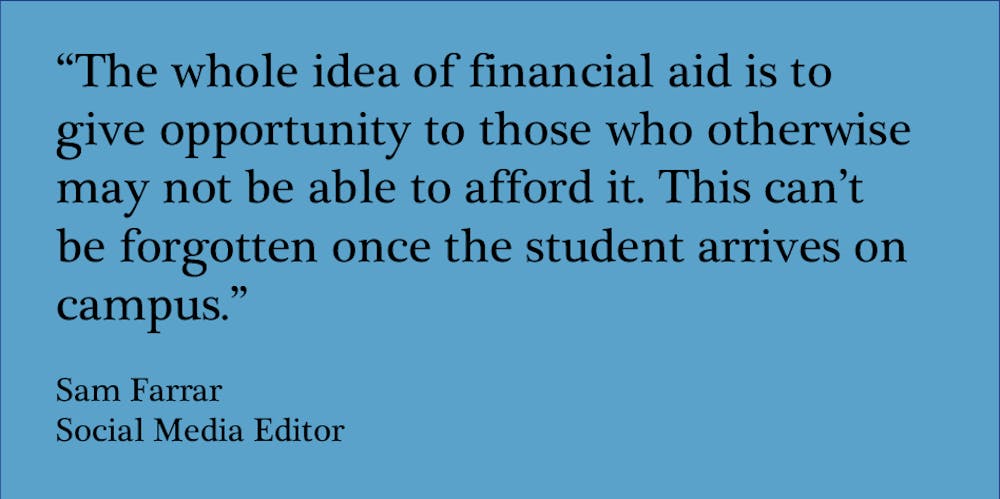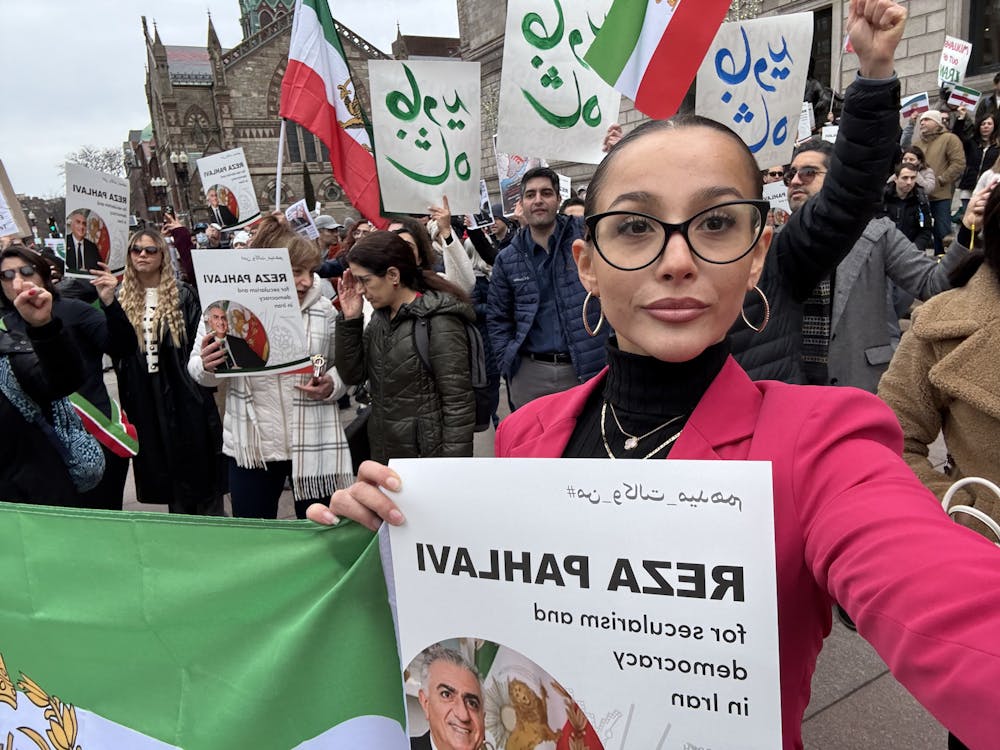I am a low-income student, which means my parent makes less than $30,000 a year. This doesn’t mean I lived in squalor, but I certainly wouldn’t be able to afford the $70,000 price tag of Hopkins without a significant amount of financial aid. So when I decided I wanted to take a class here at Hopkins over the summer, financial aid was my only option.
The Federal Pell Grant maxes out at a little below $6,000 per year and as I had almost reached the limit with the school year, I could only rely on school aid. My Hopkins package covered more than 99.8 percent of my bill alone this year, so I assumed I wouldn’t have to worry about at least half of the hefty $2,760 price tag for the class. I spent my whole spring semester saving as much as I could from my student job and managed to scrape enough together to be able to afford a sublet near campus, and working after class during the summer would have given me enough money to comfortably afford groceries.
Then, about two weeks ago, the summer aid packages were released. I was informed my package would cover $1,000, leaving me on the hook for the remaining $1,760. Not only would this bill (for one class, mind you) exceed my bill for the entire school year, but it would also most likely exceed my bills for all four years here combined.
Moreover, the Financial Aid Office wrote that this was the maximum amount of summer aid I could get “due to the large number of summer applications.” I knew there was no way my mother and I could foot this bill, so I emailed my financial aid officer, asking them if there were any alternative grants that could help me pay for the class. My officer responded, “You will need to consider paying out of pocket or using alternative loans.” I’m not even related to anyone who could shell out the $1,760 I needed.
Of course, I was grateful for the financial aid package that allowed me to actually attend Hopkins after I was accepted. Without it, I never could have afforded to even think about coming here. However, that can’t be ‘job done’ for the University. The whole idea of financial aid is to give opportunity to those who otherwise may not be able to afford it. This can’t be forgotten once the student arrives on campus. Understandably, there are things the University does not have control over, such as professional Greek life and similar national organizations that bar low-income students from participation with dues and fees. For many situations, however, it is necessary that Hopkins provides sufficient aid to low-income students to prevent the campus from developing a larger socioeconomic divide than already exists.
Summer classes are the perfect example. The University effectively bars low-income students from taking summer classes by not providing them adequate aid. Summer classes can put you ahead in your curriculum, making it easier to possibly add another major or minor by having more availabilities to fill requirements or allowing you to refine a skill you can put on your resume. By allowing only financially well-off students to participate, the University is failing to close the gap in academic opportunities between students of different socioeconomic backgrounds. Moreover, combined with the already limited and highly contested number of paid summer internships, low-income students’ opportunities for the summer are very sparse.
Of course, I am not saying that not being able to take one summer class will prevent a low-income student from getting into some PhD program or top tier career. But it is a compounding factor that makes it overall less likely and requires more effort, skill and dedication from a low-income student than from a high-income student.
Another classic example is research positions. Research positions can have a much larger effect on your post-Hopkins career than summer classes, and the wide availability of research opportunities is one of the reasons I wanted to go to Hopkins so badly. The problem is, with the positions requiring such a large commitment, they often take the place of a job. This can turn students away who, like myself, rely on a steady income from their student job. Research positions are most often permanent positions, but there is no guarantee the position can be paid. Other opportunities, such as internships, are almost never permanent and rarely paid. Research positions and internships are huge boosters on your resume and graduate school applications, but low-income students cannot rely on these positions to provide them with income and thus may be unable to apply for them.
The wealth gap permeates all of society, obviously not just our four-year home in Baltimore. The University should make sure that every one of its students have equal opportunities inside and outside of the classroom, including summer classes. As of now, it is doing a very poor job. By not providing low-income students the financial resources they need, the University manages only to reinforce the achievement gap between students of different income levels.
Sam Farrar is a freshman from Brevard, N.C. and plans to major in Political Science. He is the Social Media Editor.





